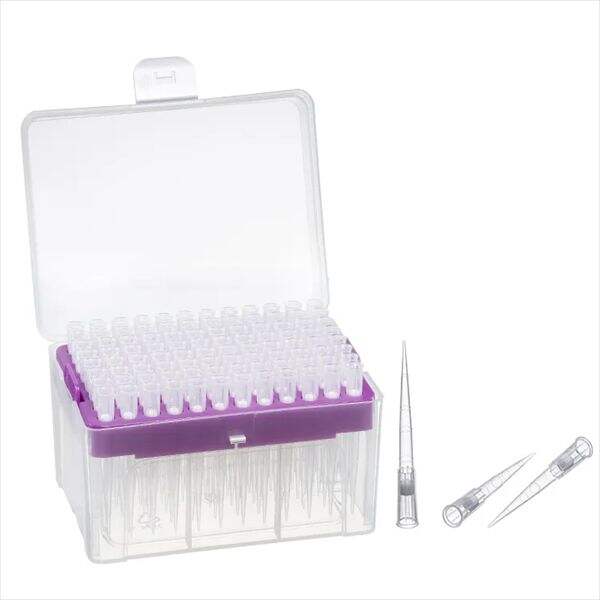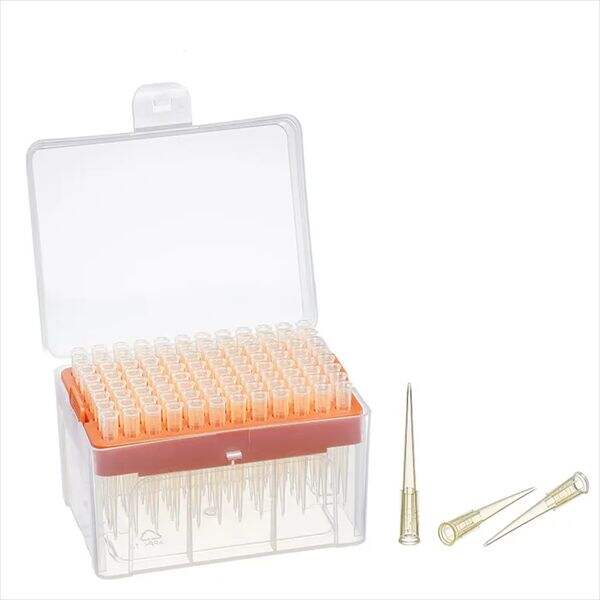Har du noen gang undret hvordan forskere måler små mengder væsker i sine eksperimenter? Verktøyet de bruker er et stykke laboratorieutstyr som heter pippette! For å kunne gi av væsker med stor nøyaktighet og forsiktighet bruker de en pippette. Pippetter finnes i ulike former og størrelser, men vi skal fokusere på plastiske pippettips i dag, mye nyere enn glassene.
De kan virke mindre sikre enn glaspipetter, men de har fordelen at, som engangssBruk og laget av plast; du kan (og bør) kaste dem ut etter én bruk. Så når en vitenskapsmann bruker en av disse plastpipette-toppene, kan den trygt kastes direkte i søppelbakken. På denne måten forhindre de bakterier og annen skremmel fra å komme i væsken til hvilke handsker blir brukt. I tillegg kan det minste mengden forurensning skjeve et eksperiment. Også, som vi alle vet at de er universelle topper for pipetter så passer én størrelse for alle typer pipetter. Dette gjør det mulig for vitenskapsmenn å bruke deres favorittpipette, og likevel lage de samme plasttoppene med et annet materiale.
Disse unngår ulempe: De koster mindre enn glasblåste Pasteur-pipetter, er enklere å bruke og blir ikke så smittige som ull! Bruk av gamle glaspipetter krever nøye rensing hver gang, noe som kan være veldig tidskrevende. Fordi forskere vanligvis har mange eksperimenter å gjøre, og å bruke tid på å vaske verktøy kan redusere effektiviteten betydelig. Men plastiske pipettspissere er engangsbruk og sparer mye tid og arbeid for forskerne.
I tillegg er plastiske pipettspissere også mye billigere i forhold til deres glassbaserte motparter. For forskere som ikke har overskudd av penger, er dette et stort fordel. Å bruke lavkostnadsplastiske spisser betyr også at de neste eksperimentene de kjører vil være bedre finansiert; mer vitenskap kan utføres enn å betale for reagenser og laboratorieutstyr.

Forskerne må måle disse væskepræcist for deres eksperimenter. Og dette er grunden til at plastiske pipettepunter kan hjelpe oss på et stort nivå. Disse er spesielt laget for å håndtere en glad og kontrollert strøm av en væske fra en beholder til en annen. Denne ubrukte ølingen er ment å forhindre utspillinger og menneskelig feil som kunne ha påvirket testresultatene.

I tillegg er plastiske pipettepunter kompatible med en bred rekke mikropipetter. Med andre ord, hvis du har >100+ pipettorer av samme merke - alle vil passe de samme punter, OG ALLE bør oppføre seg etter spesifikasjonene. Gitt denne kompatibiliteten, er det mye enklere for forskeren å fortsette med sine forskninger uten avbrytelse.

Plastiske pippetips er enkle, men høygradig pålitelige verktøy som gjør arbeidet i laboratoriet, og mange andre miljøer, ennå mer bekvemt og trygt. En vitenskapsmann kan fylle pippetippet, kaste det bort etterpå og gå videre til sitt eksperiment på kort tid uten å vaske noen av dem. Det er en metode som, ved bruk av den, de sparer sin kostbare tid og håndterer arbeidet på en effektiv måte.
laboratorie et profesjonelt, cellekultur-laboratorie, mikrobiologisk laboratorie, robottipsverifiseringslaboratorie etc. Det kan utføre enestående plastpipettips testprestasjoner med integrert forskning og opprettelse av reagenser, forbruksgoder, instrumenter.
Høy nøyaktighetsformgjøring R D-senter kan håndtere hele prosessen for produktutvikling, formdesign og produksjon, nøyaktig plastiske pipettspissformeringsprosess, prosessmodifisering, biologisk verifisering, skalaoppslag andre tjenester.
har innført nyeste utstyr og toppkvalitets råmaterialer for å garantere sikkerheten på kvaliteten. CellPro har mer enn 100 fullstendig automatiske produksjonslinjer FANUC, ARBURG, ENGEL, TOYO og andre importerte merkeinjeksjonsmaskiner som garanterer produksjonen av plastiske pipettspisser.
produktene er godkjent av ISO13485, ISO9001, ISO14001 kvalitetsstyringssystem, og har også oppnådd CE FDA standard.